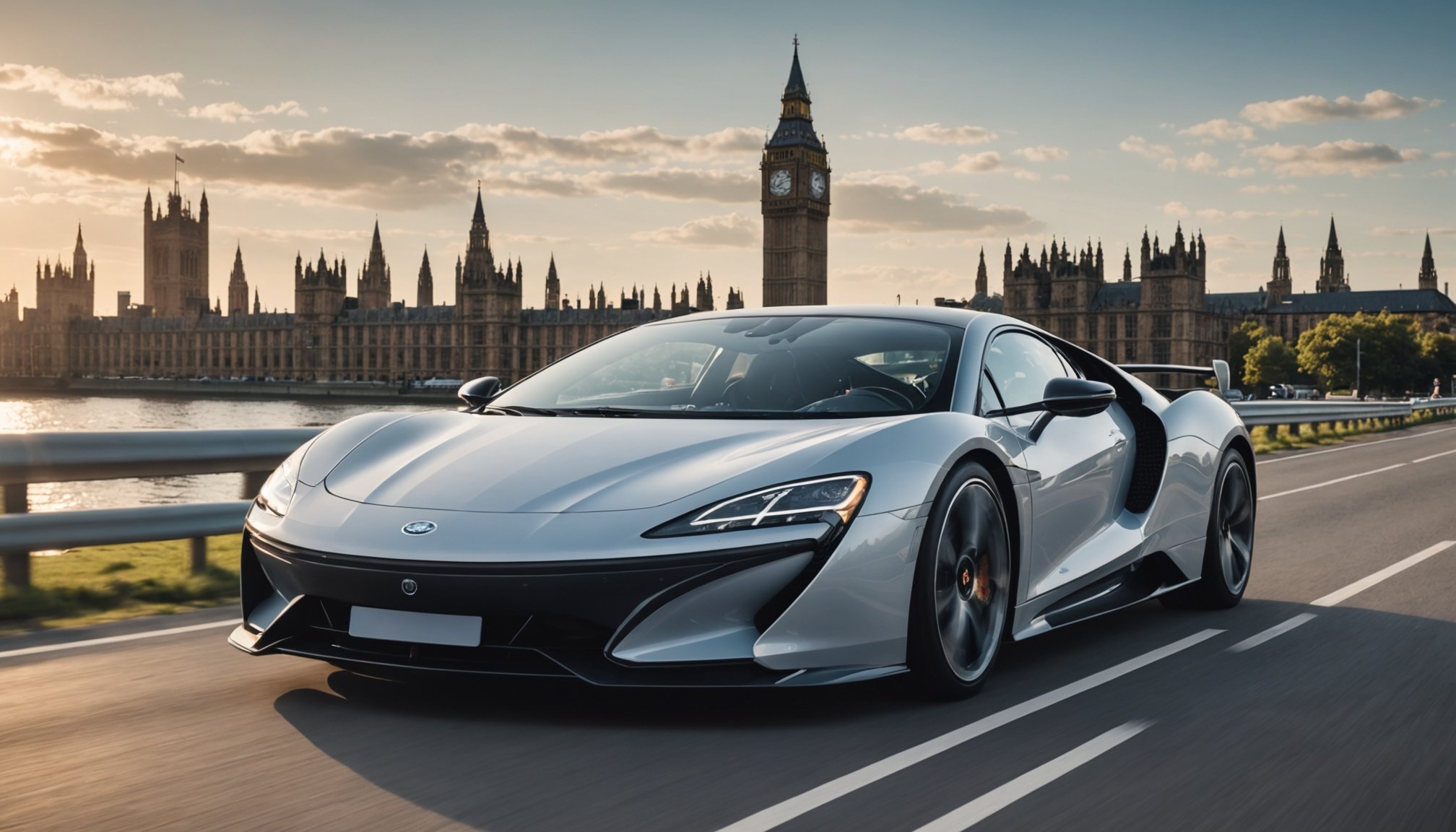Overview of the 2024 UK Automotive Landscape
The 2024 UK automotive landscape is rapidly evolving, with the industry at a transformative juncture. Understanding the significance of upcoming trends is crucial for both consumers and manufacturers as they navigate these changes. Key areas of innovation highlight the industry’s focus on sustainability, technology integration, and electrification.
The current state of the UK automotive industry reflects a shift towards more environmentally friendly operations. This transformation is driven by regulatory pressures and heightened consumer awareness. The focus is on developing sustainable automotive practices and innovative technological solutions to meet these demands.
Also read : Unveiling cutting-edge advancements in the uk”s smart motorway system and their effects on drivers
Key areas of innovation gaining traction include the rise in electrification trends and advancements in self-driving technology. These trends not only promise improved fuel efficiency and safety but also suggest significant lifestyle alterations, encouraging consumers to embrace connected cars. Furthermore, the integration of IoT within vehicles offers seamless connectivity that enhances user experience and functionality.
The UK automotive sector is also prioritising smart technology and urban mobility to cater to modern urban living, with a shift towards shared mobility solutions and smart city integrations. As these 2024 automotive trends unfold, stakeholders must adapt and collaborate toward a dynamic and sustainable future.
Also to read : Key uk road safety tips for cyclists and drivers: keep yourself safe on the roads!
Electrification Trends in 2024
The ongoing shift towards electric vehicles (EVs) marks a critical movement in the 2024 automotive trends, transforming the UK market landscape fundamentally. A significant rise in electric vehicle adoption is expected as consumer incentives, such as tax breaks and subsidies, become more appealing. Consequently, the surge in EV sales prompts manufacturers to adapt, innovating their product lines to meet environmental and consumer demands.
Government policy is influential in this realm, as changes in legislation and emissions targets strongly impact the industry. Updated safety regulations and more stringent emissions standards push automakers towards electrification, positioning the UK as a leader in sustainable transport solutions.
The development of a robust charging infrastructure is crucial to supporting this transition. Both public and private enterprises have devised ambitious plans to expand charging networks across urban and rural areas, ensuring accessibility for a broader audience. This expansion is not only essential for consumer convenience but also plays a significant role in reducing ‘range anxiety’ and bolstering consumer confidence in shifting to EVs.
Key initiatives and investments in charging networks create a promising outlook for the electrification movement, with the potential to reshape the future of mobility, paving the way for a sustainable automotive revolution.
Autonomous Vehicle Advancements
Self-driving technology in the UK is poised for substantial growth, with significant strides made in recent years. Autonomous vehicles promise enhanced safety, increased efficiency, and a potential shift in personal and public transport paradigms. These 2024 automotive trends emphasize the importance of developing robust systems capable of navigating complex road conditions.
Safety regulations play a pivotal role in steering these advancements, balancing innovation with public safety. The testing and deployment of self-driving cars require rigorous compliance with evolving standards. These regulations aim to reduce accidents, ensuring consumer trust in automation technologies.
A question often arises: Who are the major players in the autonomous vehicle sector? Companies like Waymo, Cruise, and Tesla lead the pack, investing heavily in research and development. These tech and automotive giants drive innovation, competing to establish market dominance.
Consumer acceptance remains a challenge. Building trust in self-driving technology is crucial, with educational initiatives needed to address public concerns. As these vehicles become more prevalent, consumers must adapt to new concepts, potentially reshaping urban planning and travel habits. Thus, autonomous vehicles not only redefine mobility but also underline the intersection of innovation and regulation.
Smart Technology Integration in Vehicles
In the rapidly evolving world of 2024 automotive trends, connected cars and the Internet of Things (IoT) are playing pivotal roles. This smart technology integration promises transformative benefits for consumers and manufacturers alike, enhancing vehicle functionality and user experience.
Role of the Internet of Things in the Automotive Sector
IoT enables seamless communication between vehicles and various devices. It allows cars to interact with road infrastructure, other vehicles, and even smartphones, improving operational efficiency and safety. Through IoT, cars can access real-time traffic updates, optimise routes, and monitor vehicle health, offering proactive maintenance alerts.
Advancements in In-Car Technology
Connected cars are equipped with cutting-edge in-car technologies, providing drivers with features like augmented reality displays, virtual assistants, and advanced infotainment systems. These technologies not only enhance driving enjoyment but also bolster safety with features like lane assistance and emergency braking.
Data Privacy and Cybersecurity Considerations
With increased connectivity comes the challenge of data security. Protecting sensitive user data is paramount. Manufacturers are investing in robust cybersecurity measures to prevent breaches and build consumer trust. Emphasising data privacy ensures compliance with regulations and maintains customer confidence in embracing smart technology.
Sustainability Practices in the Automotive Industry
The adoption of sustainable automotive practices is reshaping the industry’s landscape, highlighting a commitment to eco-friendly materials in manufacturing. This shift underscores the industry’s alignment with global sustainability goals. By incorporating recycled and renewable materials, automakers aim to reduce their carbon footprint significantly. This not only benefits the environment but also appeals to the eco-conscious consumer, strengthening brand reputation.
As part of the circular economy initiatives, the automotive sector actively explores efficient recycling processes. This involves repurposing materials from end-of-life vehicles, minimising landfill waste, and conserving natural resources. The continuous investment in these practices reflects the industry’s dedication to a sustainable future.
Sustainability impacts brand reputation and consumer choices profoundly. As awareness grows, consumers increasingly favour brands prioritising sustainability. Companies embracing this trend witness enhanced consumer loyalty and market competitiveness. Additionally, the integration of sustainable materials offers a strategic advantage, aligning with emerging regulatory standards and expectations.
Overall, the automotive industry’s pursuit of sustainability not only transforms production methods but also redefines consumer expectations. Through innovations in materials and processes, it paves the way for a greener, more responsible future.
Future of Mobility and Urban Transport Solutions
In 2024, the urban mobility landscape is being reshaped by innovative trends that promise to redefine our transportation experience. Smart cities are actively integrating new solutions to streamline urban transport, offering sustainable and efficient alternatives.
Trends in Shared Mobility Services
The rise of ride-sharing and car-sharing services is a key trend, offering flexibility and reducing dependence on car ownership. This shift meets the demand for sustainable transport options while promoting more efficient use of urban spaces. Consumers benefit from reduced costs and greater convenience, aligning with the broader push for sustainability.
Impact of Urban Planning on Automotive Innovation
Urban planning plays a crucial role in encouraging automotive innovation. Cities are redesigning their layouts to accommodate new mobility solutions, such as dedicated lanes for shared services and infrastructure supporting self-driving vehicles. These plans are critical for easing traffic congestion and reducing emissions, thus promoting a more eco-friendly environment.
Transportation as a Service (TaaS)
Transportation as a Service (TaaS) is another emerging trend, providing on-demand mobility services through digital platforms. This evolution in public transport is transforming how individuals access transportation, offering more personalised and adaptive service options. TaaS is revolutionising urban mobility by integrating technology and connectivity into everyday travel.
Implications for Consumers and Businesses
The evolving automotive market trends profoundly impact both consumers and businesses within the industry. Consumers’ choices and buying behaviour are increasingly influenced by innovations such as electric vehicles and self-driving technology. As these advancements offer enhanced convenience and sustainability, consumers are prioritising these aspects when purchasing vehicles.
As for businesses, traditional automotive companies face challenges and opportunities. They must adapt their practices to stay competitive with new entrants leveraging advanced technologies. This shift necessitates strategic investments in sustainable automotive practices and smart technology integration to meet modern consumer demands. Moreover, companies focusing on innovation are more likely to dominate the market, thereby reshaping the competitive landscape.
The workforce in the automotive industry is also undergoing transformation. With the rise of new technologies, there is a growing demand for skills in fields like software development and IoT integration. Companies investing in upskilling and reskilling their workforce stand to benefit in the long term, ensuring they remain relevant as the industry continues to evolve. This adaptation is crucial for traditional automotive businesses to not only survive but thrive in an increasingly tech-driven market.
Conclusion and Future Projections
As we look beyond 2024, the future of the automotive industry is set to experience transformative shifts. Market forecasts predict significant advancements driven by electrification, smart technology, and sustainable practices. These shifts are not without potential challenges, including regulatory compliance and the integration of evolving technologies into existing infrastructures.
Industry stakeholders must remain adaptable to seize the opportunities these changes bring. The proliferation of electric and self-driving vehicles will necessitate innovation in supporting technologies and infrastructure. Consumer behaviour will continue to shape market demands, emphasising sustainability and connectivity.
Challenges will arise, such as ensuring data privacy and developing robust charging infrastructure to keep pace with EV adoption. In response, stakeholders must bolster investments and collaboration across sectors. This proactive approach is vital to realising new opportunities in emerging markets.
The key for industry participants lies in anticipating disruptions and leveraging technological advancements to remain competitive. By embracing a forward-thinking mindset, businesses can navigate the unpredictable landscape, ensuring resilience and success in the rapidly evolving automotive market. Stakeholders’ commitment to innovation will be crucial, as it defines the pathway toward a sustainable, technologically advanced future.








